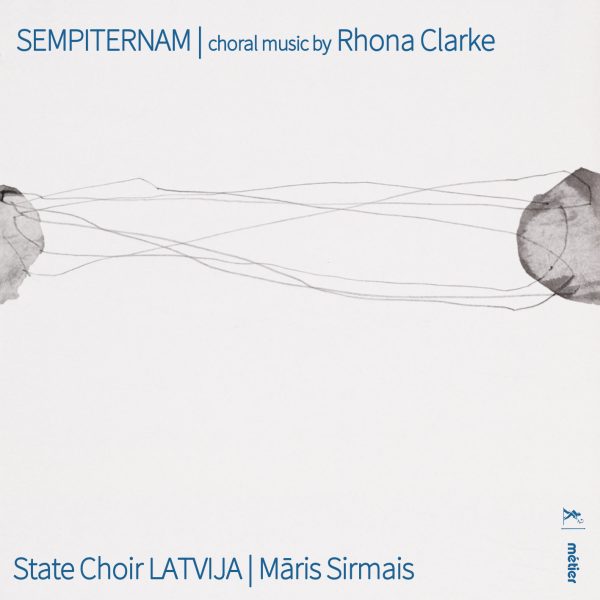Fanfare
Sempiternam is a survey of a cappella choral music by the contemporary Irish composer Rhona Clarke. The repertoire spans three decades, from the 1991 A Song for St. Cecilia’s Day to a pair of 2020 compositions, O vis aeternitatis and Requiem. As Mark Fitzgerald explains in his introductory essay, while Rhona Clarke’s primary instrument is the piano, the composer has considerable experience as a performing singer. At the age of 15, Clarke became a member of the Lindsay Singers, a female choir based in Dublin. Clarke went on to sing with numerous college choirs, and the chamber choir Gaudete. Fitzgerald continues: “This long engagement with choral singing gave (Clarke) a real ‘insider knowledge’ of how to write effectively for choral voices.”
Rhona Clarke’s mastery of choral writing manifests itself in several ways. While Clarke is not shy about challenging her singers, her compositions always respect the beauty of the human voice, and the parameters within which it can function. Clarke’s “effective” writing encompasses music that is diligently focused upon reflecting the meaning of the text. To achieve this, Clarke employs (again, to quote Fitzgerald): “the increased palette of sounds utilised with glissandi, percussive sounds such as stamping and a more thorough exploration of different degrees of speech and sprechgesang, often simultaneously with pure sung tone.” And while the repertoire in Sempiternam is prevailingly tonal in orientation, Clarke often introduces dissonance and atonality, once again as a means of illuminating the words she sets to music.
Clarke’s versatility is illustrated by the featured works, spanning the chilling expression of grief for a brother killed in battle (Ave atque vale), to the comforting message of the Requiem, to the dark humor of The Old Woman, to unbridled joy in Make We Merry. In each case (and in all the other works on the disc), Clarke fashions a setting that is both appropriate and compelling.
The State Choir LATVIJA, led by its Artistic Director Māris Sirmais, is a superb advocate for Clarke’s music. The choir sings with a rich, focused, and balanced sonority, keen articulation of the text, and unfailing energy and commitment. This is challenging music, indeed, and the State Choir LATVIJA does it justice at every turn. The recording, made at the Riga St. John’s Church, strikes a marvelous balance of spacious acoustic, clarity, and detail. Both Mark Fitzgerald’s essay and the composer’s own program notes provide welcome context and insight. This is a superb release in every respect.
@divineartrecordingsgroup
A First Inversion Company
Registered Office:
176-178 Pontefract Road, Cudworth, Barnsley S72 8BE
+44 1226 596703
Fort Worth, TX 76110
+1.682.233.4978












